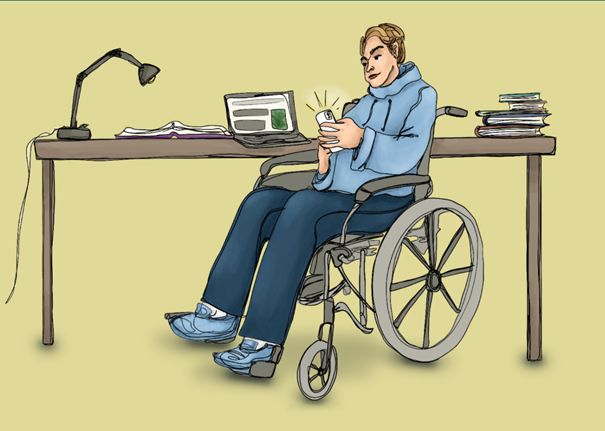Procrastination
Means that you postpone something you have actually decided to do, even though you know it's detrimental to you. Many believe that procrastination is the same as laziness, but "real" laziness means being indifferent to completing tasks or not caring about the consequences of not doing them.
Procrastination, on the other hand, is intending to do something but failing to follow through. The more you procrastinate, the more negative consequences can arise, such as stress, guilt, anxiety, depression, or poorer academic performance.
Why do we procrastinate?
The causes of procrastination can be divided into internal and external factors. Internal factors relate to individual characteristics, especially the ability to regulate one's behavior and low impulse control (being easily distracted). Other internal factors include low self-confidence and a lack of self-efficacy.
External factors relate to the structure surrounding the study situation, such as long deadlines where you largely have to manage the structure and progress on your own. This allows procrastination to thrive. Lastly, the advent of smartphones has made us vulnerable to distractions. A survey shows that young people check their phones up to 150 times a day.
How to avoid the procrastination trap?
- Take time to gain an overview and plan, so you know the amount of work required. Remove distractions. Have a clean and clear workspace. Turn off your phone or put it away when you are studying.
- Reward yourself after completing what you planned.
- Practice being aware of what you are doing; pause and observe. Are you about to make a choice that takes you away from the task?
- Work on self-confidence and self-compassion, acknowledge yourself for what you achieve. Find some self-compassion exercises you can do.
- Stay close to your studies. The longer you avoid tasks, the harder it becomes to get started.
- Participate in classes/group work, etc. Avoiding participation can quickly become part of the problem because you miss out on valuable information and perspectives on the subjects.
- Remember that you don't work best under pressure. You may think you do, but that's probably because you only work under pressure. If you work under intense time pressure, the chances of making mistakes are greater.
Someone to talk to?
If you procrastinate a lot and need someone to talk to about it, the student welfare organizations have advisors and psychologists who are well acquainted with this issue. It can be helpful to have someone support you for a while, as it may take time to break free from an ingrained pattern. The student welfare organizations also offer a range of courses and webinars on procrastination.
